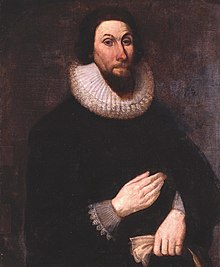by Tom Holland
That October, as the people of Leiden celebrated their liberation from the Spanish, and Reformed preachers pushed with ever more determination for their country to serve worthily as a new Israel, war was threatening the Protestants of the Rhineland and Bohemia. As in the days of Žižka, a Catholic emperor had mustered armies to march on Prague. His ambition: to extirpate Protestantism…
The centre did not hold. On 8 November, the Protestant forces on White Mountain were broken. Prague fell the same day. The war, though, was far from over. Quite the opposite. It was only just beginning. Like the blades of a terrible and revolving machine, the rivalries of Catholic and Protestant princes continued to scythe, mangling ever more reaches of the empire, sucking into the mulch of corpses ever more foreign armies, turning and ever turning, and only stopping at last after thirty years. Christian teachings, far from blunting hatreds, seemed a whetstone. Millions perished. Wolves prowled through the ruins of burnt towns. Atrocities of an order so terrible that, as one pastor put it, ‘those who come after us will never believe what miseries we have suffered’, were committed on a numbing scale: men castrated; women roasted in ovens; little children led around on ropes like dogs…
To many in the killing fields of Germany and central Europe, it seemed that the roots of the Republic’s greatness were being fed by blood. Munitions, and iron, and the bills of exchange that funded the rival armies: all were monopolised by Dutch entrepreneurs. The great dream of the godly—that by their example they might inspire anguish-torn humanity to reach out to the joy and the regeneration that only divine grace could ever provide—was shadowed by the nightmare of a Christendom being torn to pieces…
On 9 November 1620, one day after the battle of the White Mountain, a ship named the Mayflower arrived off a thin spit of land in the northern reaches of the New World. Crammed into its holds were a hundred passengers who, in the words of one of them, had made the gruelling two-month voyage across the Atlantic because ‘they knew they were pilgrims’—and of these ‘pilgrims’, half had set out from Leiden. These voyagers, though, were not Dutch, but English. Leiden had been only a waypoint on a longer journey: one that had begun in an England that had come to seem to the pilgrims pestiferous with sin. First, in 1607, they had left their native land; then, sailing for the New World thirteen years later, they had turned their backs on Leiden as well. Not even the godly republic of the Dutch had been able to satisfy their yearning for purity, for a sense of harmony with the divine. The Pilgrims did not doubt the scale of the challenge they faced. They perfectly appreciated that the new England which it was their ambition to found would, if they were not on their mettle, succumb no less readily to sin than the old. Yet it offered them a breathing space: a chance to consecrate themselves as a new Israel on virgin soil…
John Winthrop
Too much was at stake. It being the responsibility of elected magistrates to guide a colony along its path to godliness, only those who were visibly sanctified could possibly be allowed a vote. ‘The covenant between you and us,’ Winthrop told his electorate, ‘is the oath you have taken of us, which is to this purpose, that we shall govern you and judge your causes by the rules of God’s laws and our own, according to our best skill.’ The charge was a formidable one: to chastise and encourage God’s people much as the prophets of ancient Israel had done, in the absolute assurance that their understanding of scripture was correct. No effort was spared in staying true to this mission. Sometimes it might be expressed in the most literal manner possible. In 1638, when settlers founded a colony at New Haven, they modelled it directly on the plan of an encampment that God had provided to Moses. [pages 340-343]
